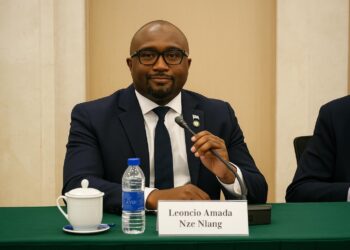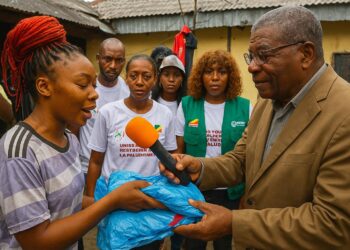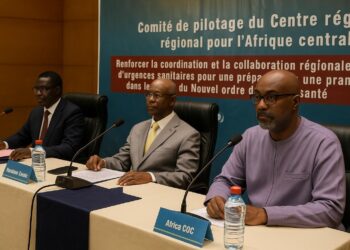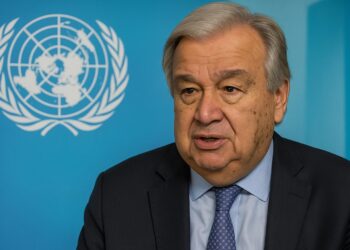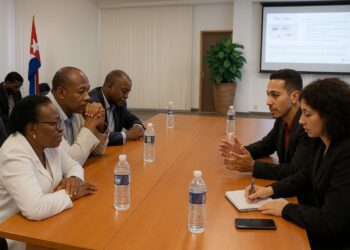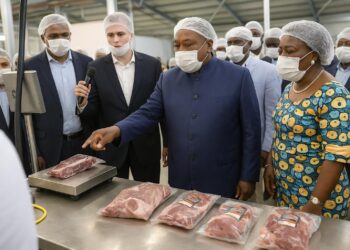CHAN 2024 stakes for Central Africa
The African Nations Championship, designed for players active in domestic leagues, has gradually become a soft-power arena where capitals test their sporting depth and regional prestige. Brazzaville approached the 2024 edition in Abidjan seeking both athletic validation and diplomatic visibility within Central Africa.
Group D, gathering Sudan, Senegal, Nigeria and Congo, looked balanced on paper but masked contrasting preparation cycles. Reports from CAF’s technical commission indicated that Nigeria and Senegal played at least twelve competitive fixtures in the twelve months preceding kick-off, double Congo’s tally.
Congo’s group journey in detail
Congo opened with a cagey nil-nil against Sudan in Bouaké, a match dominated by midfield congestion and a disallowed Théo Bongonda finish that television replays suggested was onside. Coach Isaac Ngata hailed his defenders’ discipline yet privately worried about the lack of cutting edge.
Four days later, Senegal’s locally-sourced Lions seized a late equaliser through Pape Diouf on 85 minutes, cancelling Vérité Maboulou’s earlier volley and forcing a second draw. The result kept qualification arithmetically possible, but it also meant Congo now required a two-goal victory over Nigeria.
That scenario set the stage for a tense last match in Yamoussoukro. For 55 minutes the Red Devils contained Nigeria’s swift wingers, only to concede when Anas Yusuf slipped between the centre-backs. As Brazzaville pushed forward, goalkeeper Pavelh Ndzila produced three saves to preserve hope.
Hope evaporated in the third minute of stoppage-time as Sikiru Alimi finished a counterattack, sealing a 2-0 scoreline and eliminating Congo on two points. Nigerian coach Salisu Yusuf later remarked that Congo’s “defensive shape was impressive, but fatigue betrayed them in transition.”
Technical gaps and preparation issues
Analysts across Congolese media converged on a recurrent theme: inadequate competitive rhythm. Domestic Ligue 1 paused for administrative restructuring between February and May, leaving clubs to schedule friendlies rather than league fixtures. The hiatus reduced match fitness and limited the coaching staff’s tactical experimentation.
Financial debates also surfaced. Players reportedly received appearance bonuses later than scheduled, a point the federation attributes to banking delays rather than budgetary stress. Still, veteran midfielder Kader Bidimbou confessed after the Nigeria match that “uncertainty about allowances can distract even experienced squads.”
Preparation time was further compressed by logistics. Training sessions initially planned for the coastal city of Pointe-Noire were moved to Brazzaville to accommodate visa processing, trimming four days of field work. Assistant coach Gérard Goma described the adjustment as “necessary, though hardly ideal for cohesion.”
Regional implications and diplomatic optics
Beyond the scoreboard, Congo’s early departure narrows Central Africa’s voice in a tournament heavily watched by scouts and investors. With Cameroon absent and Gabon in reconstruction, Brazzaville had hoped to showcase the sub-region’s potential and attract technical partnerships for youth academies.
Diplomats posted to Côte d’Ivoire note that sport remains a discreet conduit for bilateral engagement. Congo’s embassy hosted a reception on match-day two, inviting officials from Sudan and Senegal to discuss transport corridors along the Congo River. Such side-meetings proceeded regardless of on-field fortunes.
Strategic reflections for Brazzaville
Inside the Ministry of Sports, discussions now revolve around aligning domestic calendars with CAF competitions. A concept note seen by this reporter proposes a January-November league, leaving December for national-team camps. Officials believe the move could harmonise player conditioning with continental timelines.
Technical director Barthélemy Ngoulou is also advocating data analytics. He cites Senegal’s partnership with a French firm that tracks sprint load via GPS vests. “Numbers limit guesswork,” he argues, urging clubs to adopt affordable versions even before a full federation rollout.
Crucially, officials avoid framing the exit as failure. Government spokesperson Thierry Moungalla stresses the incremental nature of elite sports, pointing to the under-23 team’s recent qualification for the All-Africa Games as evidence of a broader upward curve. “Patience and planning go together,” he told journalists.
Looking ahead to 2025 qualifiers
The immediate horizon is the 2025 Africa Cup of Nations qualifiers, whose draw arrives in April. Sources at CAF headquarters indicate Congo will likely share a pot with Ghana, Burundi and Libya based on coefficient rankings. Securing home wins at Alphonse-Massamba-Débat Stadium is deemed non-negotiable.
CHAN 2024 therefore ends as a cautionary yet instructive chapter. The Red Devils demonstrated commitment, but the margins at international level punished every lapse. If the proposed reforms materialise, Brazzaville could convert this disappointment into a foundation for sustainable competitiveness rather than a footnote of regret.
Public reaction and media discourse
Congolese social media reflected both frustration and optimism. Hashtag #DiablesRouges trended on X for forty-eight hours, with former striker Prince Oniangué urging supporters to “criticise constructively.” Editorialists in Brazzaville’s Les Dépêches praised the squad’s spirit but demanded a youth-development blueprint.
Such dialogue, while passionate, remains largely respectful of institutional efforts, a notable departure from the post-2022 climate. Observers interpret the shift as evidence that stakeholders perceive the government’s sports policy as evolving rather than static.


































